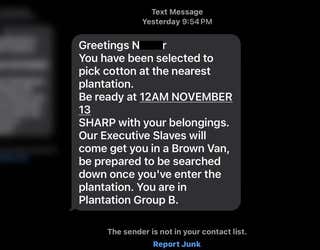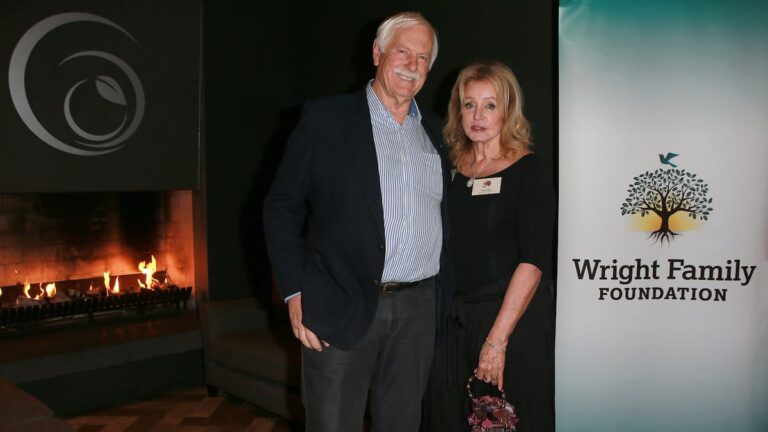Tachelle Lawson’s Book Challenges Corporate Woke Culture and Diversity
Challenging Corporate Woke Culture: Tachelle Lawson’s Bold Perspective
In today’s corporate landscape, discussions surrounding diversity and inclusion have become increasingly prominent. However, not every viewpoint aligns with the mainstream narrative. Enter Tachelle Lawson, a fierce advocate and thought leader whose new book, “Black is Not a Credential,” boldly challenges the entrenched norms of corporate woke culture. If you’ve ever rolled your eyes at the buzzwords thrown around offices, then this book might just resonate with you. Join me on a deep-dive into Lawson’s thought-provoking ideas and the implications of her arguments on the corporate world.
The Rise of Woke Culture in Corporations
You’ve probably heard the term “woke” thrown around a lot, right? It’s become almost a catchphrase in discussions about social justice and corporate responsibility. In essence, being woke means being aware of societal injustices and inequalities, particularly in relation to race, gender, and other identity markers. Many organizations, keen to appear responsible, have adopted this narrative, integrating diversity training programs and hiring practices that emphasize representation.
But here’s the kicker: while many corporations proudly tout their commitment to diversity, Lawson questions whether this approach genuinely fosters inclusivity and understanding or simply serves as a hollow performance. Her book argues that the mere presence of diverse employees does not equate to equitable treatment or real change.
Unpacking Lawson’s Arguments
A Shift from Tokenism to Authentic Inclusion
One of the core arguments in Lawson’s book is the concept of tokenism versus authentic representation. Imagine being in a room where the décor is vibrant and colorful, but the conversations are monochrome. This metaphor encapsulates how many companies operate — they might have a diverse staff on paper, but the experience and voices of those employees tell a different story.
- Tokenism refers to superficial efforts that fulfill a quota but lack substantive change.
- Authentic inclusion requires creating spaces where everyone feels safe to voice their views, share their experiences, and contribute to decision-making.
Lawson starkly reminds us, “Representation without respect is still oppression.” It’s a clarion call for organizations to go beyond the superficial and strive for a culture that embraces every individual’s uniqueness.
The Dangers of Overemphasis on Identity
Often, companies lean heavily on identity markers when discussing diversity, which can inadvertently pigeonhole individuals. Lawson makes a compelling case that reducing someone’s entire identity to one aspect can be damaging. Think of it like reading just one page of a rich novel — you miss the context, depth, and nuances that make the story worthwhile.
- This reductive view may lead to unconscious bias or assumptions about a person’s capabilities and boundaries based solely on their race, gender, or background.
- What’s needed instead is a holistic appreciation of what each person brings to the table — their experiences, ideas, and talents that transcend identity labels.
The Need for a Business-Basic Approach
Perhaps one of the most groundbreaking notions in Lawson’s work is her challenge for businesses to adopt a “business-basic” approach to diversity. Instead of simply checking boxes for diversity initiatives, what if organizations prioritized policies and practices that foster genuine engagement and performance enhancement?
Consider this analogy: if a restaurant only cares about having a diverse menu but neglects the quality of its ingredients and preparation, customers will leave dissatisfied despite the variety they were promised. Similarly, businesses need to ensure their diversity strategies are not merely performative but integrally woven into the fabric of their operations.
The Role of Leaders and Their Accountability
Leadership is pivotal when it comes to enacting real change within corporate structures. Lawson argues that leaders must step outside the echo chambers of corporate speak and become accountable for their actions regarding diversity and inclusion.
Key Takeaways for Effective Leadership:
- Empower voices: Leaders should actively seek input from diverse team members, ensuring their ideas are not just heard but valued.
- Set measurable goals: It’s essential to establish clear benchmarks and assess progress regularly.
- Cultivate a growth mindset: Leaders must be open to learning and evolving, acknowledging that their understanding of diversity issues may change over time.
Sparking the Conversation: How to Engage
Engaging in discussions about diversity and inclusion can feel daunting. Here’s a friendly piece of advice: don’t shy away from the conversation. Instead, approach it with an open mind and a willingness to learn. Here are a few tips on how to navigate these discussions:
- Ask questions: Curiosity is a powerful tool. Instead of making assumptions, ask your colleagues about their experiences and perspectives.
- Listen actively: Create a space where people feel heard. Sometimes, it’s not about providing solutions but simply validating someone’s experiences.
- Share your thoughts: Don’t be afraid to express your viewpoints, even if they differ from the majority. Dialogues about diversity are the breeding ground for progress.
Tachelle Lawson’s Impact: Beyond the Pages
“Black is Not a Credential” is not just a book; it’s a rallying cry for change in corporate culture. Lawson’s articulate and unapologetic perspectives challenge the status quo, encouraging readers to rethink their views on diversity and inclusion. Her work has implications far beyond the corporate world, seeping into education, policy-making, and societal norms.
The Bottom Line
In the end, Lawson’s insights propel us to reconsider our definitions of diversity and our approaches to embedding it within corporate frameworks. Are we simply going through the motions, or are we truly committed to fostering an inclusive environment? These are the kinds of questions every organization should be asking.
As we reflect on this discussion, let’s keep in mind that the goal isn’t to create a homogenous environment but to celebrate the rich tapestry of backgrounds, experiences, and perspectives that each person brings. After all, isn’t that what makes organizations thrive?
Conclusion
In a time when diversity discussions are ever-present, Tachelle Lawson’s book offers a refreshing perspective by challenging established notions within corporate culture. Rather than merely participating in the ongoing dialogue, Lawson pushes organizations to take a hard look at their actual practices and intentions. The pressing need for leaders to foster genuine inclusion, not just representation, resonates throughout her work, ultimately calling for a shift toward sincerity in corporate diversity efforts.
It’s time for businesses to dismantle the performative nature of diversity and to invest in authentic inclusion that celebrates the richness of human experience. As we embrace these changes, we can work towards not just better workplaces, but a better society.
FAQs
1. What is Tachelle Lawson’s main argument in her book?
Lawson argues against tokenism in corporate diversity efforts and advocates for authentic inclusion that values individuals’ full experiences beyond identity markers.
2. How can businesses adopt a “business-basic” approach to diversity?
They can prioritize genuine engagement, create policies that foster inclusion, and ensure that diversity strategies are integrated into their core operations.
3. Why is leadership important in achieving diversity and inclusion?
Leaders set the tone for organizational culture, and their accountability is essential for effective implementation of diversity initiatives.
4. What are some practical tips for engaging in diversity discussions?
Ask questions, listen actively, and share your thoughts while being open to new perspectives.
5. How does Lawson’s book contribute to the larger conversation on diversity?
It challenges corporations to rethink their strategies and commitments towards diversity, promoting a deeper understanding of what true inclusion looks like.







